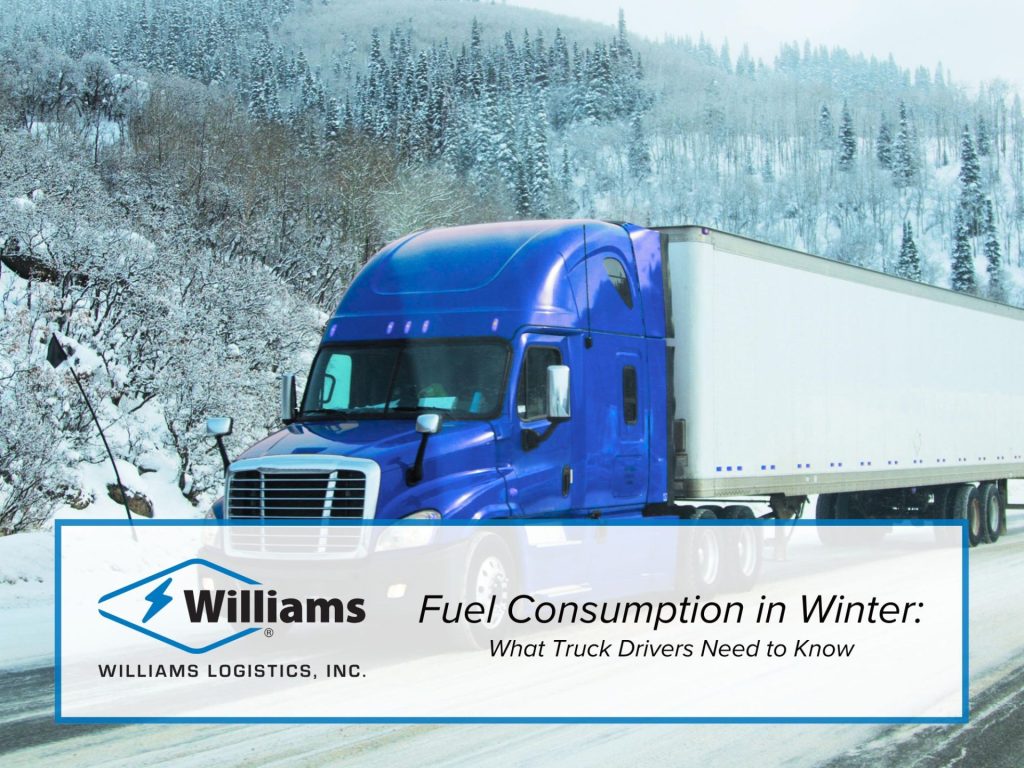As the temperature drops and winter sets in, truck drivers and fleet managers at William's Logistics need to be aware of the impact cold weather has on fuel consumption. Understanding these factors can help optimize operations and manage costs during the challenging winter months.
Why Does Fuel Consumption Increase in Winter?
Several factors contribute to increased fuel consumption during winter:
Denser Air and Fuel
Cold air is denser than warm air, which increases aerodynamic drag on vehicles, especially at highway speeds. This requires more power and fuel to maintain speed. Additionally, winter-blend gasoline has a higher Reid Vapor Pressure (RVP) to ensure proper engine operation in cold temperatures, but this can slightly reduce fuel efficiency.
Engine Performance
Cold weather prolongs the time it takes for an engine to reach its optimal operating temperature. Until the engine warms up, it operates less efficiently, consuming more fuel. This is particularly noticeable on shorter trips where the engine may not have enough time to fully warm up.
Additional Power Demands
Winter driving often involves using accessories like heaters, defrosters, and windshield wipers more frequently. These all consume extra power, which in turn reduces fuel efficiency.
Tire Pressure and Rolling Resistance
Tire pressure decreases in colder temperatures, leading to increased rolling resistance. This forces the engine to work harder, consuming more fuel.
Winter Tires and Fuel Consumption
While winter tires are crucial for safety in snowy and icy conditions, they can impact fuel efficiency:
- Winter tires typically have higher rolling resistance due to their deeper tread patterns and softer rubber compounds.
- This increased rolling resistance can lead to a 5% to 15% increase in fuel consumption compared to standard tires.
- However, the safety benefits of winter tires often outweigh the slight decrease in fuel efficiency, especially in regions with severe winter conditions.
6 Strategies to Optimize Fuel Efficiency in Winter
To mitigate the impact of cold weather on fuel consumption, consider the following strategies:
- Minimize Idling: Limit engine warm-up time to about 30 seconds. The engine warms up faster when driven gently.
- Maintain Tire Pressure: Regularly check and maintain proper tire pressure to reduce rolling resistance.
- Use Recommended Oil: Use the type of oil recommended by the vehicle manufacturer for cold weather driving.
- Plan Efficient Routes: Plan trips when possible to allow the engine to reach and maintain its optimal operating temperature.
- Remove Unnecessary Weight: Remove any accessories that increase wind resistance when not in use.
- Regular Maintenance: Keep engines well-tuned and ensure all systems are functioning properly to maximize efficiency.
By understanding the factors that influence fuel consumption in winter and implementing these strategies, drivers can optimize their operations, maintain safety, and manage fuel costs effectively during the challenging winter months. While increased fuel consumption is inevitable in cold weather, proactive measures can help minimize its impact on a fleet's efficiency and bottom line.
